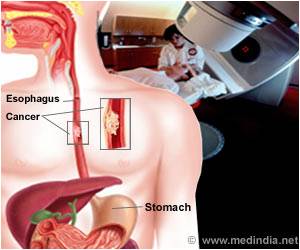A cutting-edge genomic test revolutionizes pediatric cancer care by offering detailed insights into tumor characteristics.

Benefits for children with suspected cancer from routine whole genome sequencing
Go to source). The study, published in Nature Medicine, is the first time that the impact of using whole genome sequencing in current NHS practice has been assessed.
‘#Genomesequencing has provided critical insights into children's #tumors, guiding precise care decisions and shaping future treatment strategies. #precisionmedicine #leukemia’





Impact of Routine Genome Sequencing on Pediatric Cancer Care
The team analysed the use of routine genome sequencing, through the NHS Genomic Medicine Service, in two children's cancer centres for solid cancer and leukaemia in England. The researchers found that cancer sequencing gave new insights that improved the immediate clinical care of seven percent of children, while also providing all the benefits of current standard tests.For example, uncovering unexpected mutations that increase future cancer risk leading to preventative measures being taken, such as regular screening.
Overall, whole genome sequencing provides additional, relevant data, about childhood cancer that is useful for informing practice. The results also show that it can reduce the number of tests required, and therefore, researchers suggest it should be provided to all children impacted by cancer.
Whole genome sequencing (WGS) is a single test that provides a complete readout of the entire genetic code of the tumour and identifies every single cancer-causing mutation. Comparatively, traditional standard-of-care tests only look at tiny regions of the cancer genome, and therefore many more tests are often required per child.
Professor Sam Behjati, senior author from the Wellcome Sanger Institute, Cambridge University Hospitals, and the University of Cambridge: “Whole genome sequencing provides the gold standard, most comprehensive and cutting edge view of cancer. What was once a research tool that the Sanger Institute started exploring over a decade ago, has now become a clinical test that I can offer to my patients. This is a powerful example of the genomic data revolution of healthcare that enables us to provide better, individualised care for children with cancer.”
Advertisement
The latest study, from the Wellcome Sanger Institute, Cambridge University Hospitals NHS Trust, Great Ormond Street Hospital, and the University of Cambridge, looked at 281 children with suspected cancer across two English units where this gold-standard test is provided regularly.
They found that WGS changed the clinical management in seven percent of cases, improving care for 20 children, by providing information that is not possible to acquire from standard of care tests.
Additionally, WGS faithfully reproduced every one of the 738 standard of care tests utilised in these 281 cases, suggesting that a single WGS test could replace the multiple tests that the NHS currently uses if this is shown to be economically viable.
WGS provides a detailed insight into rare cancers, for example, by revealing novel variants of cancer. The widespread use of genome sequencing will enable clinicians to access these insights for individual patients while simultaneously building a powerful shared genomic resource for research into new treatment targets, possible prevention strategies, and the origins of cancer.
Reference:
- Benefits for children with suspected cancer from routine whole genome sequencing - (https://www.nature.com/articles/s41591-024-03056-w)















